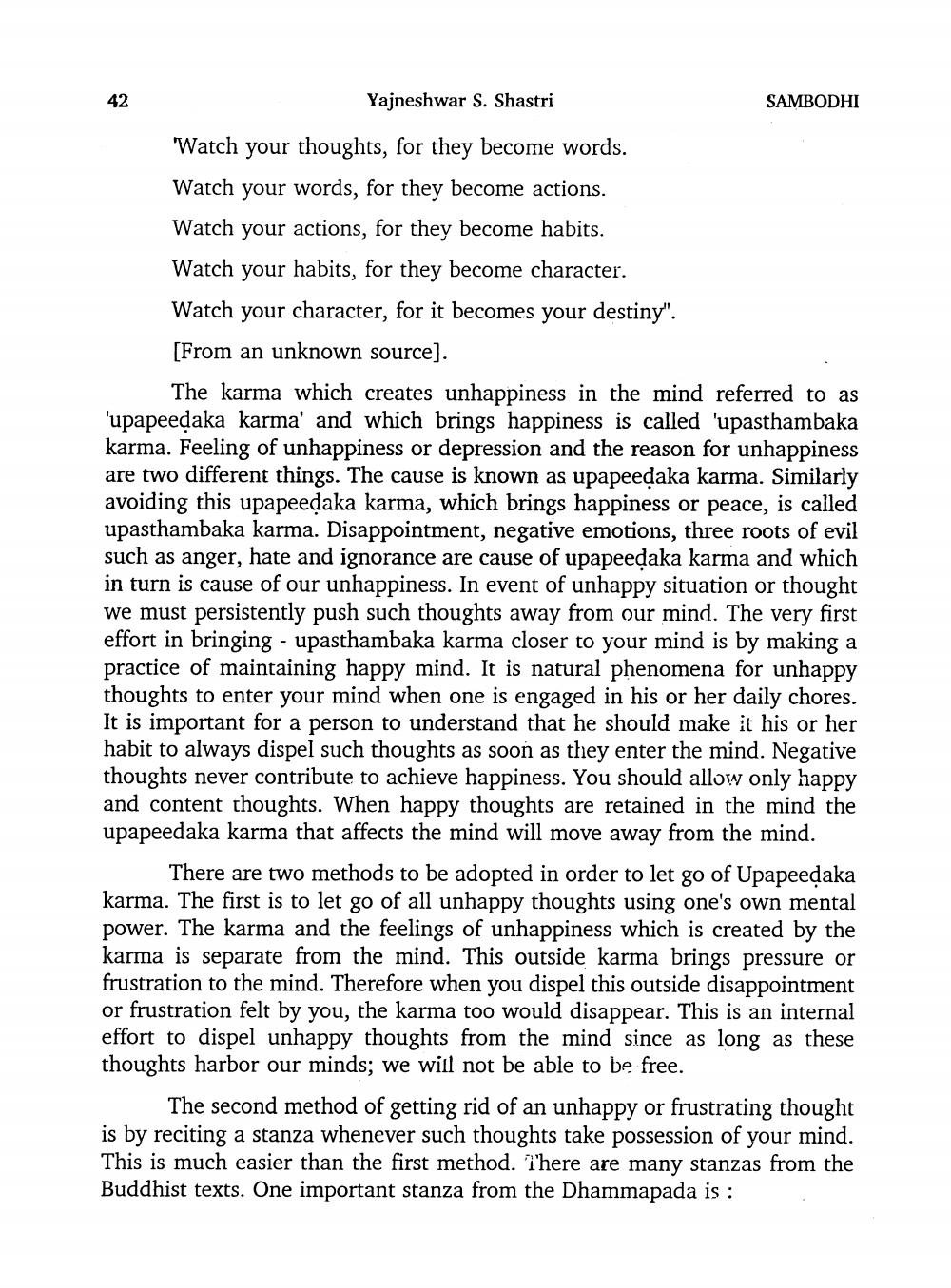________________ 42 Yajneshwar S. Shastri SAMBODHI 'Watch your thoughts, for they become words. Watch your words, for they become actions. Watch your actions, for they become habits. Watch your habits, for they become character. Watch your character, for it becomes your destiny". [From an unknown source]. The karma which creates unhappiness in the mind referred to as 'upapeedaka karma' and which brings happiness is called 'upasthambaka karma. Feeling of unhappiness or depression and the reason for unhappiness are two different things. The cause is known as upapeedaka karma. Similarly avoiding this upapeedaka karma, which brings happiness or peace, is called upasthambaka karma. Disappointment, negative emotions, three roots of evil such as anger, hate and ignorance are cause of upapeedaka karma and which in turn is cause of our unhappiness. In event of unhappy situation or thought we must persistently push such thoughts away from our mind. The very first effort in bringing - upasthambaka karma closer to your mind is by making a practice of maintaining happy mind. It is natural phenomena for unhappy thoughts to enter your mind when one is engaged in his or her daily chores. It is important for a person to understand that he should make it his or her habit to always dispel such thoughts as soon as they enter the mind. Negative thoughts never contribute to achieve happiness. You should allow only happy and content thoughts. When happy thoughts are retained in the mind the upapeedaka karma that affects the mind will move away from the mind. There are two methods to be adopted in order to let go of Upapeedaka karma. The first is to let go of all unhappy thoughts using one's own mental power. The karma and the feelings of unhappiness which is created by the karma is separate from the mind. This outside karma brings pressure or frustration to the mind. Therefore when you dispel this outside disappointment or frustration felt by you, the karma too would disappear. This is an internal effort to dispel unhappy thoughts from the mind since as long as these thoughts harbor our minds; we will not be able to be free. The second method of getting rid of an unhappy or frustrating thought is by reciting a stanza whenever such thoughts take possession of your mind. This is much easier than the first method. There are many stanzas from the Buddhist texts. One important stanza from the Dhammapada is :




